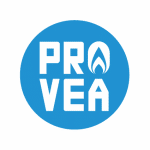"Educating in human rights should be an exercise of celebration, based on what we have yet to achieve; it is about betting on life and dignity, but transcending the abstract elaborations and landing the educational proposals in the daily life, with a long term vision to transcend the anecdotes and recognize ourselves in the structural aspects of society"
Ligia Bolívar, founding member of PROVEA
Human rights education, accompanied by the active participation of citizens, allows us to create rights awareness, resulting in the dignification of life and a vision for social transformation, which is only achieved through the enforceability and realization of human rights, with special stressing on Economic, Social and Cultural Rights.
Provea is born with a strong educational perspective that seeks, not to exhaust institutional action in the mere defense of cases, but its projection and contribution to the prevention of human rights violations, through widespread knowledge of these rights.
Human Rights Education (HRE) is an essential component of the right to education, and as such, a necessary condition for the exercise of other rights, whether civil, political, economic, social, cultural, of first peoples, to peace, to development, or to specific sectors. For this reason, various international instruments recognize human rights education as a right and emphasize its importance.
HRE is understood as a set of training and information dissemination activities aimed at creating a universal culture in the field of human rights through the transmission of knowledge; the teaching of skills and the formation of attitudes, with the aim of strengthening respect for human rights and fundamental freedoms; fully developing the human personality and the sense of human dignity; promoting equality between men and women, and friendship among all nations, indigenous peoples and racial, national, ethnic, religious and linguistic groups; facilitating the active and effective participation of everyone in a free and democratic society governed by the rule of law; fostering and maintaining peace, and promoting a sustainable development centered on people and justice.
Human rights education, skill-sharing and training has become increasingly important.
The deep transformation of all the structures of our societies is a fundamental element for people, different social groups, neighborhoods, religious, cultural, among others, to be able to come before the defense of human rights.
Education is a preventive element that generates the full conviction that, through human rights, we will have citizens who are the authors of their own realization.
Provea has developed different educational strategies aimed at: popular sectors, community organizations, NGOs, students and workers. The organization works under methodological tools, such as courses, workshops, forums and talks.
Publications
In the very beginning, PROVEA developed Training Processes for Popular Monitors in Human Rights, as well as human rights training activities in the “…context of formal education to disseminate the proposal of human rights education, considering that those first years in the formation of children and adolescents were essential to develop attitudes consistent with respect for human rights, understood broadly as the promotion of values of equality, non-discrimination, justice, solidarity, equity, among others…”
Later, the Audiovisual Modules on Human Rights Education (MAEDH) were developed; since 1996, the series “Having Rights is Not Enough” was progressively published; and since 2000, the Annual Seminar on ESC Rights Education was held, as well as specific educational processes in different states of the country.
The initial reasons for editing and producing materials (publications, videos, brochures, posters, etc.) are associated with the need to raise awareness on human rights, beyond the provisions of national and international legal norms, and to make them known and recognized as part of the human person, and therefore enforceable.
Provea restates the need to educate on ESCR, since progress has been made in the general knowledge of human rights, yet, the organization considers that the progress is lesser with respect to the recognition of ESCR as human rights and not mere aspirations.
